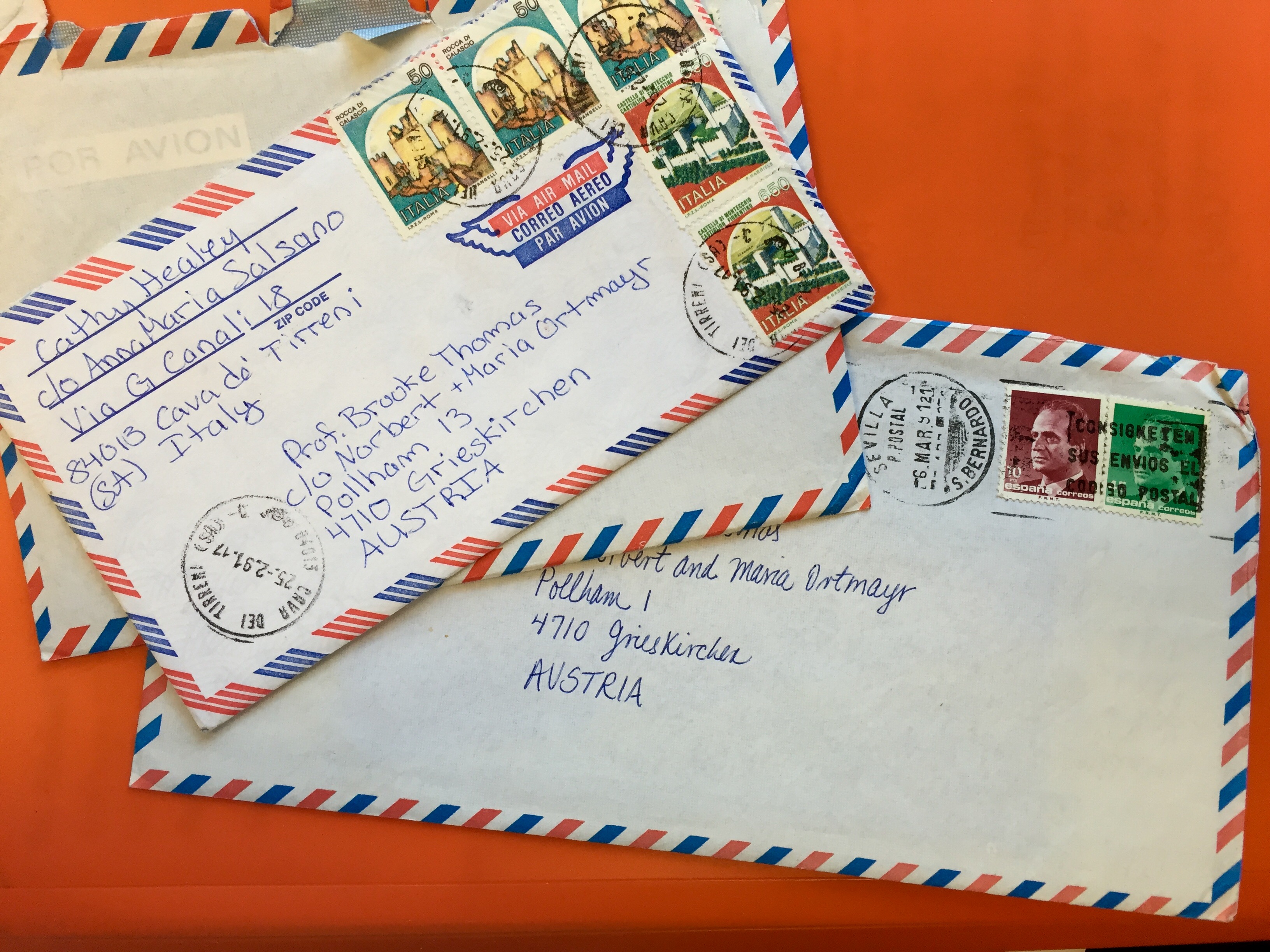European Field Studies Program Records

The European Field Studies Program has played a critical role in graduate and undergradute training in the UMass Amherst Department of Anthropology since its inception in the late 1960s. The program provides opportunities for graduate students and honors undergraduates to gain practical experience in fieldwork by taking part in intensive projects at selected sites in Europe. The program is designed to assist students in developing concrete research plans and to begin to put their plans into effect.
The EFS collection contains correspondence between faculty and students about fieldwork, student research proposals and final reports, publications and data on the distinguished lecturers, departmental memos and meeting minutes, and range of other miscellaneous and financial material.
Background on European Field Studies Program
The European Field Studies Program (EFS) in the Department of Anthropology at the University of Massachusetts Amherst was initiated in the late 1960s with a proposal written by European faculty of the Anthropology Department, Joel M. Halpern, Oriol Pi-Sunyer, and Zdenek (Denny) Salzman. The program is designed to train students in fieldwork through short-term, (3 month) projects designed by the students in a three-course series led by a rotating faculty member. The original program included funding for the faculty member to be in Europe at the same time as the students and also funded part of the student’s own research. The late 1960s proposal was initiated in coordination with the “Freiburg Program” in what is now the German and Scandinavian Studies Department. The exchange program with universities in Baden-Wurttemberg, Germany was established in 1964 and the University of Freiburg was to be the first exchange university with the Anthropology Department, beginning in Spring, 1970. Funding from the University was provided beginning in spring 1972 for faculty to do a teaching exchange with the host university, a practice that survived for nearly a decade. Throughout the program, other institutions became partners for EFS and hosted retreats or conferences with local anthropologists for the students participating in the EFS Program in the Spring. These include the Museo San Michele in Trento, Italy, Central European University in Budapest, Hungary, University of Barcelona in Barcelona, Spain, and University of Deusto in Bilbao, Spain.
The program’s three-course series includes a proposal writing course, a course during the fieldwork session in which students report to the director about their progress, and a data analysis course after fieldwork is completed. All students present both their research proposals and their post-fieldwork data to the department. The organization of the fieldwork has changed in structure through the history of the program, sometimes being organized around a host institution (1970s) or a theme (2010s). The student proposals in the collection reflect these structures and include research on placemaking, crisis, social justice, value, and grassroots organization, to name a few. The program was funded through a National Science Foundation IRES Grant from 2010 through 2013, called Cultural Heritage in European Societies and Spaces (CHESS). The CHESS grant was renewed through 2017.
In 1996, the European Field Studies program began to offer an Annual Distinguished Lecture in European Anthropology. This lecturer is often co-sponsored within the Five College Consortium and reflects contemporary trends in the field. The first invited lecturer was Michael Herzfeld. Other departments on campus and in the Five College Consortium often co-sponsored the lectures and provided additional funding. During the period of CHESS funding, another speaker in European Anthropology was also funded.
Contents of Collection
The collection includes financial documents, correspondence between faculty and students about fieldwork, student research proposals and final reports, publications and data on the distinguished lecturers, publicity flyers, curriculum notes and syllabi, and departmental memos and meeting minutes relating to the European program. The financial memos contain the trials of maintaining funding for the program amidst budget cuts and rising costs for travel to and living in Europe. Most striking is the fact that until 1982, the student stipend was about $1200 for a three-month trip and after that, remained about $2000 until 1996 when the program budget was doubled. Throughout the history of the program, several narratives were composed to define the program and re-instill its importance to the Dean and other members of the administration. Student success in receiving external grants because of their work in the EFS program is regularly described as an important marker of success. Some of these applications are also included in the collection. Another important feature of the collection includes some notes on interviews with faculty (Oriol Pi-Sunyer and Martin Wobst) who led the program in the early decades.
Administrative information
Access
The collection is open for research.
Language:
English
Provenance
Gift of Elizabeth Krause, Nov. 2017.
Processing Information
Processed by Rebecca Bartusewich, Dec. 2017.
Copyright and Use (More information )
)
Cite as: European Field Studies Program Records (RG 25 A6 E97). Special Collections and University Archives, University of Massachusetts Amherst Libraries.
